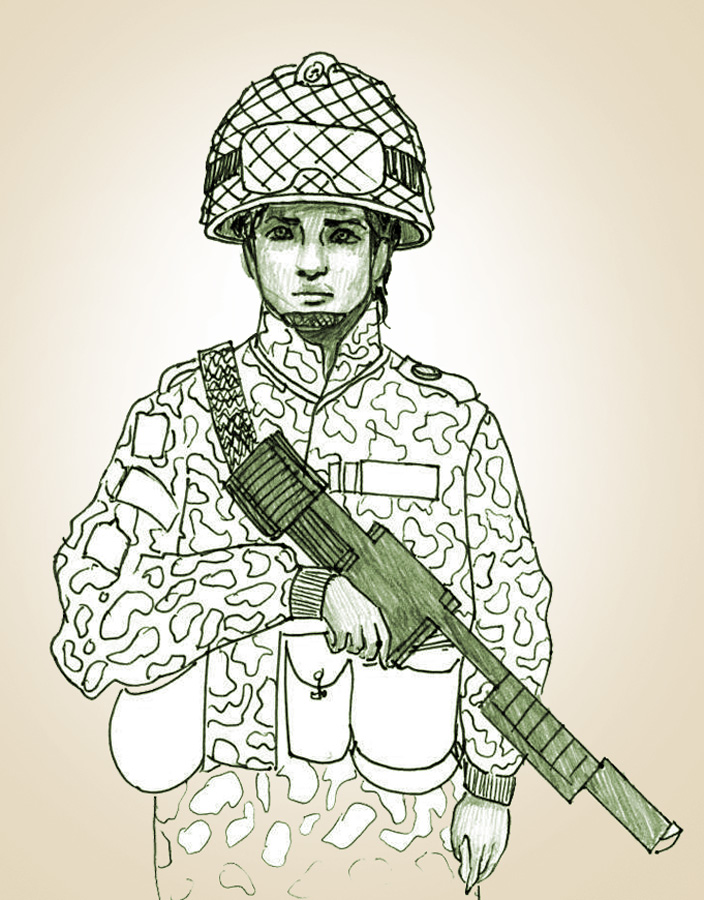
“Today, General Dempsey [Chairman of the Joint Chiefs of Staff] and I are pleased to announce that we are eliminating the direct ground combat exclusion rule for women,” said United States Secretary of Defense Leon Panetta. On Jan. 23, Panetta gave this statement overturning the 1994 Pentagon rule barring women from holding combat roles in the military.
According to the Defense Department, this decision will open an additional 14,325 positions to women, who currently comprise about 15 percent of the approximately 1.5 million active U.S. troops. However, women will not be able to serve in Special Forces such as Navy SEAL Teams.
Despite the new policy, U.S. servicewomen have witnessed combat in the past, only under non-combat occupations. In modern warzones such as Iraq and Afghanistan where the front lines are often unclear, women have often found themselves engaged in battles alongside their male counterparts. As the American Civil Liberties Union points out, some non-combat military units such as “Female Engagement Teams” have engaged in combat on numerous occasions.
In addition, their contributions to the country have come with much sacrifice; more than 130 have died so far serving in Iraq and Afghanistan.
Panetta says, “Female service members have faced the reality of combat, proven their willingness to fight and, yes… die to defend their fellow Americans.”
Junior and Naval Sea Cadet Matthew Lanthier expresses approval towards the recent change. Lanthier says, “I think it’s definitely a step forward for equal rights in the military and I support it. It’s similar to something recent that has happened in the navy. The navy is now allowing female sailors to serve as submariners in the submarine service.”
The greater inclusion of women could benefit the military in a variety of ways, including a wider pool of people from which to choose the most qualified candidates.
Sophomore Kelsey O’Donnell says, “I think that by keeping women out, they’re decreasing the number of people they can have as well as decreasing the skill sets. I think that it will overall improve the military.”
The path to this historic decision includes several notable pushes, such as the Nov. 2012 filing of a federal lawsuit by the ACLU challenging the ban. One of the arguments presented involved the exclusion of women from numerous leadership positions due to lack of combat experience. For instance, Major Mary Jennings Hegar, a Purple Heart recipient, cannot compete with men on Air Force combat and special operation positions.
More recently, Dempsey sent Panetta a letter on Jan. 9 with the Joint Chiefs of Staff’s agreement that the combat exclusion rule should be eliminated. While these actions did not directly lead to the policy change, they represent important pieces that pushed the military to implement new changes.
The move towards equality in the military has been gradual. Two years prior to this announcement, the “Don’t Ask, Don’t Tell Repeal Act of 2010” passed Congress and allowed openly gay individuals to serve in the military. Soon afterwards, calls for gender equality escalated, which played no small role in pushing for January’s announcement.
United States Marine Corps Private First Class Richard Leung, an Aragon alumnus, has trained with women in the marines and reports no issues in his experiences. While supportive of this change, Leung raises a concern. “If a male marine was faced with the decision of having to save either a female or a male marine, even with the mindset of not leaving anyone behind, he will instinctively go for the female first [before] the male.”
Leung’s concerns will be just one of many that the military must address in the three years it will have to implement new policies that reflect the inclusion of women in combat. It will ultimately be up to individual military branches to develop policies that reflect an inevitable change in the demographic composition of the armed forces.
Furthermore, the Defense Department’s directive could have effects beyond the armed forces.
Lanthier adds, “By overcoming obstacles in a profession deemed one of the most masculine in the world, women can prove themselves just as capable as men. If they can succeed here, it will serve to break down bias in other professions such as law enforcement and medicine.”

Very nice article!